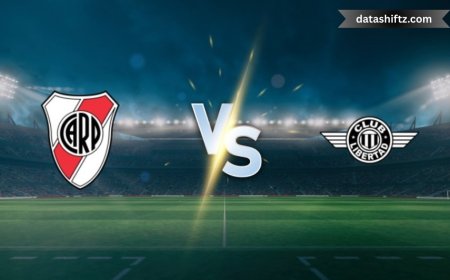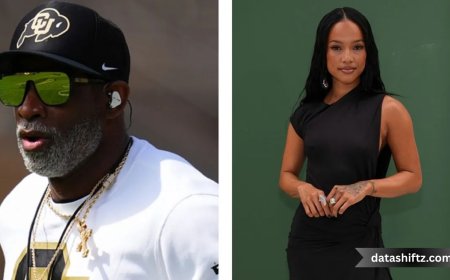Jimmy Kimmel Return: What You Need to Know

Introduction
Jimmy Kimmel, long-time late-night host of Jimmy Kimmel Live! on ABC, has been at the center of recent controversy. After comments he made regarding the assassination of conservative activist Charlie Kirk sparked backlash, ABC (under Disney) suspended his show indefinitely. Less than a week later, the network reversed course after internal discussions and public outcry. This article explores what led to Kimmel’s suspension, how the return was decided upon, and what the implications are—for free speech, broadcast regulation, and late-night television.
What Happened: Suspension of Jimmy Kimmel Live!
Origins of the Controversy
-
On September 15, 2025, Jimmy Kimmel made remarks in his monologue about the killing of conservative activist Charlie Kirk. He criticized what he felt was political exploitation of the event, suggesting some in the MAGA movement were trying to frame the narrative post-fact.
-
The comments stirred significant criticism from conservative figures, broadcast affiliates, and regulators, particularly from FCC Chair Brendan Carr.
Suspension & Responses
-
On September 17, 2025, ABC/Disney announced that Jimmy Kimmel Live! would be suspended indefinitely.
-
Broadcast groups such as Nexstar and Sinclair pulled the show from their ABC-affiliate stations.
-
The decision provoked backlash: from other late-night hosts, media-industry unions, civil liberties groups, and many entertainers defending free expression.
Return Announcement: How & When Kimmel Is Coming Back
Key Facts of the Return
| Decision/Factor | Detail |
|---|---|
| Return Date | The show is set to return on Tuesday, September 23, 2025. |
| Reason Given | After “thoughtful conversations” between Disney/ABC executives and Jimmy Kimmel; network saying that some of the remarks were “ill-timed and thus insensitive.” |
| Who Opposed Return | Sinclair announced it will not air the show on its 39 ABC affiliate stations initially despite the network's decision. |
| Public Support | Over 400 Hollywood and entertainment figures signed a letter in support of Kimmel. |
| Regulatory Pressure | FCC Chair Brendan Carr had threatened possible regulatory consequences; ABC cited that element among concerns. |
Implications: What This Return Means More Broadly
Free Speech vs. Broadcast Accountability
Kimmel’s suspension and subsequent reinstatement brought to the forefront debates about where the line is drawn between free expression and corporate / regulatory pressure. The involvement of the FCC—as regulators who oversee broadcast licensing—and the public demands for both condemnation and support illustrate how late-night comedy is no longer isolated from politics.
The Role of Affiliates and Media Ownership
Even with the show returning, not all ABC affiliate stations will air it immediately. Sinclair’s refusal to broadcast the return signals that media ownership and content decisions by local affiliates still carry weight. This fracturing in distribution raises questions about how network-level decisions are executed across the larger broadcast ecosystem.
Corporate & Public Relations Pressure
Disney’s decision to suspend and then restore the show suggests that large media companies must balance between creative expression, internal policies, advertiser and regulator expectations, and public sentiment. The backlash (both critical and supportive) and ensuing media storm may serve as a precedent for how other networks respond when their talent crosses controversial lines.
What to Expect: Kimmel’s Return Episode and Aftermath
Format & Timing
-
The show resumes its usual late-night timeslot: 11:35 pm ET / 10:35 pm CT.
-
The structure—monologues, guest interviews, comedic segments—is expected to remain largely the same. Whether references to the suspension or controversy will appear in the first episode is uncertain.
Uncertainties & Potential Changes
-
Apology or Clarification? There is speculation whether Kimmel will issue a formal apology or clarification about his remarks. While he reportedly refused to offer an apology initially, he may address how the comments were received differently than he intended.
-
Broadcast Reach may be limited in regions served by ABC affiliates like Sinclair who are not airing the show.
-
Censorship & Editorial Oversight: It is possible ABC or Disney will impose guidelines or content review processes to prevent future conflicts. Though not confirmed, some reporting suggests executives had discussions with Kimmel about tone and timing.
Key Takeaways from the Jimmy Kimmel Return
-
Suspension Was Short‐Lived: Less than a week after ABC suspended Jimmy Kimmel Live!, the network reinstated the show.
-
Comments at the Heart: The spark was Kimmel’s monologue concerning the death of Charlie Kirk and perceived politicization.
-
Regulatory Pressure: Statements by FCC officials threatened consequences for broadcasters, which likely influenced the initial suspension.
-
Affiliate Stations Resist Return: Major affiliates like Sinclair are refusing to air the show initially, reducing its reach in some markets.
-
Strong Support for Free Speech: A number of entertainers, unions, and public figures voiced support for Kimmel’s reinstatement, emphasizing the issue’s impact on media freedoms.
-
Corporate Calculations Matter: Disney/ABC’s public statement emphasized that some comments were “ill-timed” and their decision followed “thoughtful conversations,” indicating some negotiated agreement rather than unilateral reinstatement.
-
Public Interest & Ratings Impact: Both audience reaction and affiliate decisions likely had financial and reputational implications.
-
Potential Precedent Set: The case may influence how late-night hosts, networks, and regulators interact over politically charged material going forward.
Conclusion
Jimmy Kimmel’s return is more than just a late-night host resuming his show after a suspension—it’s a flashpoint in the ongoing tension among media, politics, regulatory power, corporate responsibility, and artistic expression. While ABC has allowed Jimmy Kimmel Live! back on the air, the controversy has raised enduring questions: How much oversight should networks have over content? What limits—if any—exist around public commentary by entertainers? And how should broadcast regulators, affiliates, and parent companies balance business concerns with free speech and public interest?
As the show resumes, viewers will be watching not just for jokes and interviews, but for what the return says about norms in American media. Whether this episode becomes a pivot point remains to be seen—but the fallout of this brief suspension will likely echo in how late-night television, satire, and on-air commentary are handled in the future.




























